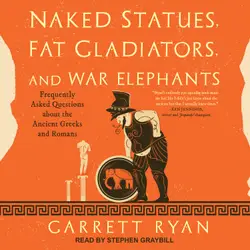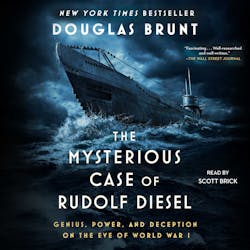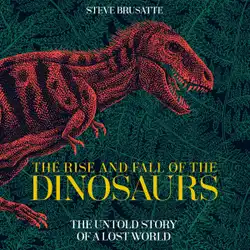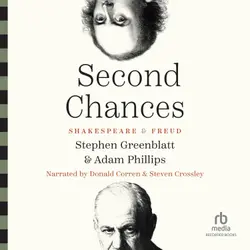World-renowned Shakespeare scholar Stephen Greenblatt explores the playwright's insight into bad (and often mad) rulers. As an aging, tenacious Elizabeth I clung to power, a talented playwright probed the social causes, the psychological roots, and the twisted consequences of tyranny. In exploring the psyche (and psychoses) of the likes of Richard III, Macbeth, Lear, Coriolanus, and the societies they rule over, Stephen Greenblatt illuminates the ways in which William Shakespeare delved into the lust for absolute power and the catastrophic consequences of its execution. Cherished institutions seem fragile, political classes are in disarray, economic misery fuels populist anger, people knowingly accept being lied to, partisan rancor dominates, spectacular indecency rules-these aspects of a society in crisis fascinated Shakespeare and shaped some of his most memorable plays. With uncanny insight, he shone a spotlight on the infantile psychology and unquenchable narcissistic appetites of demagogues-and the cynicism and opportunism of the various enablers and hangers-on who surround them-and imagined how they might be stopped. As Greenblatt shows, Shakespeare's work, in this as in so many other ways, remains vitally relevant today.
Tyrant
Begynd din 14 dages gratis prøveperiode
- Fuld adgang til hundredtusindvis af lydbøger og e-bøger i vores bibliotek
- Opret op til 4 profiler – inkl. børneprofiler
- Læs og lyt offline
- Abonnementer fra 99 kr. pr. måned

Tyrant
World-renowned Shakespeare scholar Stephen Greenblatt explores the playwright's insight into bad (and often mad) rulers. As an aging, tenacious Elizabeth I clung to power, a talented playwright probed the social causes, the psychological roots, and the twisted consequences of tyranny. In exploring the psyche (and psychoses) of the likes of Richard III, Macbeth, Lear, Coriolanus, and the societies they rule over, Stephen Greenblatt illuminates the ways in which William Shakespeare delved into the lust for absolute power and the catastrophic consequences of its execution. Cherished institutions seem fragile, political classes are in disarray, economic misery fuels populist anger, people knowingly accept being lied to, partisan rancor dominates, spectacular indecency rules-these aspects of a society in crisis fascinated Shakespeare and shaped some of his most memorable plays. With uncanny insight, he shone a spotlight on the infantile psychology and unquenchable narcissistic appetites of demagogues-and the cynicism and opportunism of the various enablers and hangers-on who surround them-and imagined how they might be stopped. As Greenblatt shows, Shakespeare's work, in this as in so many other ways, remains vitally relevant today.

Swerve
Kevin Cullen
audiobook
The Dictionary of Obscure Sorrows
John Koenig
audiobookbook
The Afghanistan Papers : A Secret History of the War
Craig Whitlock, The The Washington Post
audiobookbook
Naked Statues, Fat Gladiators, and War Elephants
Garrett Ryan
audiobook
1177 B.C. : The Year Civilization Collapsed: Revised and Updated
Eric H. Cline
audiobook
This Changes Everything : Capitalism vs. The Climate
Naomi Klein
audiobookbook
The Mysterious Case of Rudolf Diesel : Genius, Power, and Deception on the Eve of World War I
Douglas Brunt
audiobookbook
Pandora's Jar : Women in the Greek Myths
Natalie Haynes
audiobook
The Rise and Fall of the Dinosaurs : The Sunday Times Bestseller, The Untold Story of a Lost World
Steve Brusatte
audiobook
No Logo : Mærkerne, magten, modstanden
Naomi Klein
book
Kirkegården i Prag
Umberto Eco
audiobookbook
Storesøster, Lillesøster, Røde Søster : Tre kvinder, der prægede Kina i det tyvende århundrede
Jung Chang
audiobookbook


